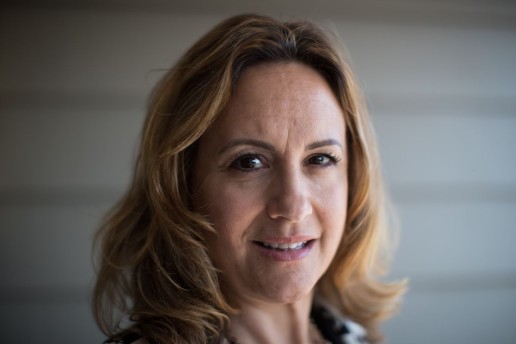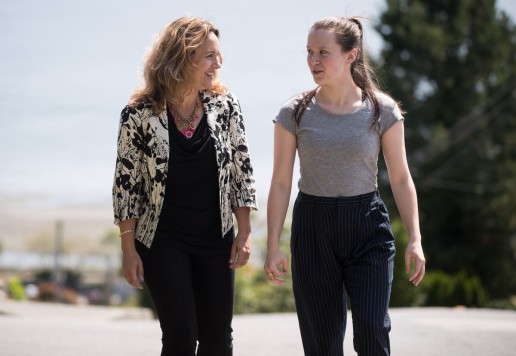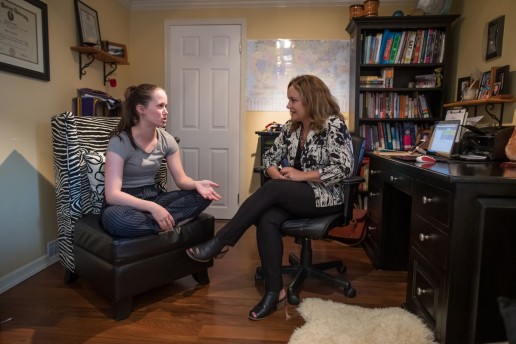Finding The Right Fit
Published by: THE GLOBE AND MAIL
Date: SEPTEMBER 27, 2019
Author: JENNIFER LEWINGTON
In 2017, then a top Grade 11 student at a French-immersion school in Surrey, B.C., Molly White knew exactly what she wanted to do after graduation: study medicine in Britain and become a surgeon. What was less clear at the time, she says, was which university would help her reach that goal.
White and her parents turned to professional consultant Hilary Lehn, in nearby White Rock, B.C., to guide her through the daunting application process and the selection of a university best-suited for an outgoing, driven teenager such as herself.
Now 19, White returns this fall for her second year of medical studies at the University of St. Andrews in Scotland, thrilled to be at her school of choice, closer to her career goal. She says she still feels indebted to Lehn.
“I would not be in St. Andrew’s without her,” White says. “I would not have known how to get there, I would not have gotten in had it not been for her and I also would not have had such an amazing and happy first year.”
Lately, however, the education consultant industry has been in the news for the wrong reasons, largely because of a high-profile college admissions scandal in the United States earlier this year. American consultants were among those tied to an alleged fraud to help several celebrity parents (and others) land coveted spots for their children at Ivy League schools.
After the scandal, many parents across North America were left asking themselves: What is the legitimate role – and value – of an education consultant?
Industry professionals say their primary value is in helping students find the right “fit” with an institution, without making dubious promises about a guaranteed placement at a prestigious school.
“A parent in Canada who says, ‘I want my kid to go to Harvard [University], and I will hire a consultant’ – that’s a lousy reason to hire a consultant, and I would discourage it,” says Mark Sklarow, chief executive officer of the Independent Education Consultants Association. “Hire a consultant if you are open to great possibilities and you want to find the best fit [for the student].”

He says interest in joining the Washington-based global organization, a long-time advocate of ethical practices, shot up after the admissions scandal that led to U.S. Department of Justice charges against more than 50 people. The association’s lengthy membership requirements include a master’s degree in counselling or admission, completion of an ethics course, at least three years of industry experience and peer review of marketing materials.
“We are looking to make sure this isn’t someone looking to make outlandish promises, guarantee that 'We can get you into your school of choice or that we will write your essay,’ ” Sklarow says.

Lehn, an IECA member, earned a Master’s of education in counselling psychology and higher-education admission and worked for universities and private schools for more than 20 years before establishing her practice in 2013.
She charges $225 an hour and says she was unaffected by the U.S. scandal. She urges parents to “look at the credentials and experience of the person you are hiring.”
After an initial meeting that includes parents, Lehn conducts subsequent sessions with the student alone to learn about their interests and aspirations.
“That leads into identifying what are the postsecondary options that suit both your profile and where you would be competitive for admission, but that will also serve you best and meet your criteria,” she says.
When she first began her college hunt, White says she looked exclusively at the academic reputation of institutions. But Lehn encouraged her to take a more comprehensive approach, considering the whole experience, from academics and clubs to the social environment of the school.
“She forced me to look in a different direction and consider all these other things,” says White, who eventually narrowed her list to four schools in Britain, St. Andrews among them, and four universities in Canada.

Like Lehn, veteran education consultant Teo Salgado, also an IECA member, emphasizes the essential ingredient of “fit” between an applicant and a university.
“More than [focusing on] prestige, focus on ‘Am I really going to be able to pursue what I want to study at a university?’ ” urges Salgado, a former Canadian university admissions and recruitment official who founded Toronto-based consulting firm VerveSmith five years ago. “’Does it have the approach to teaching that I am looking for?”
For some parents, the complexity of the application process and the intensity of competition for places are reasons enough to hire a consultant, whose fees range between $3,000-$6,000 for a year of counselling, and much higher for student athletes.
“It’s more than doing a Google search,” says Vivian Souroujon, a Toronto parent who hired Salgado to assist her daughter over the past year. This fall, the 17-year-old entered an undergraduate program at New York University’s Stern School of Business, her first choice.
Souroujon, a Canadian and American citizen, earned her degree in the United States. But she says the current application system has new variables, including two standardized tests – the SAT and the ACT – to choose from as part of the admissions process. She says Salgado outlined the pros and cons of each test and whether her daughter, also a dual citizen, should apply as a Canadian or an American.
“It is so competitive in the U.S., and we needed someone with a finger on the pulse if we were going to make this investment,” Souroujon says, praising Salgado for his insights.
Another challenging aspect of applications to major U.S. and British institutions is the required personal essay. Many college consultants offer coaching with this step. White still vividly recalls receiving edits on a first draft of one personal essay from Lehn.
“I swear the entire page was red with corrections,” she recalls, of the consultant’s response. “It was horrible.”
While grammatically correct, the essay lacked what Lehn knew would make White stand out: details about her long commitment to ballet, her interest in kick-boxing and other activities. “We kept going back and forth until it was perfect,” White says.
On the basis of her essay and school marks, she flew to Scotland for an in-person interview and learned of her admission once back in B.C.
After one year at St. Andrews, White says she is exactly where she wants to be: “It encompasses everything I wanted.”